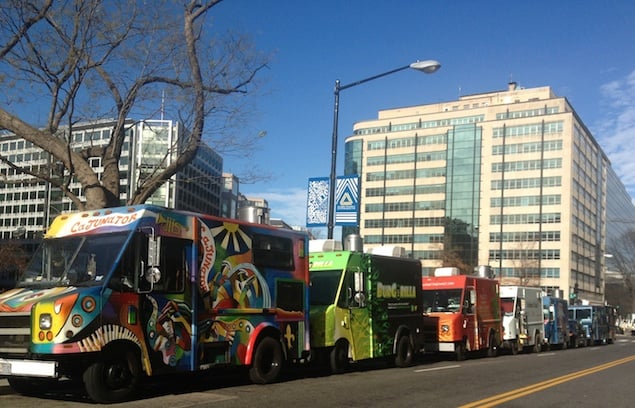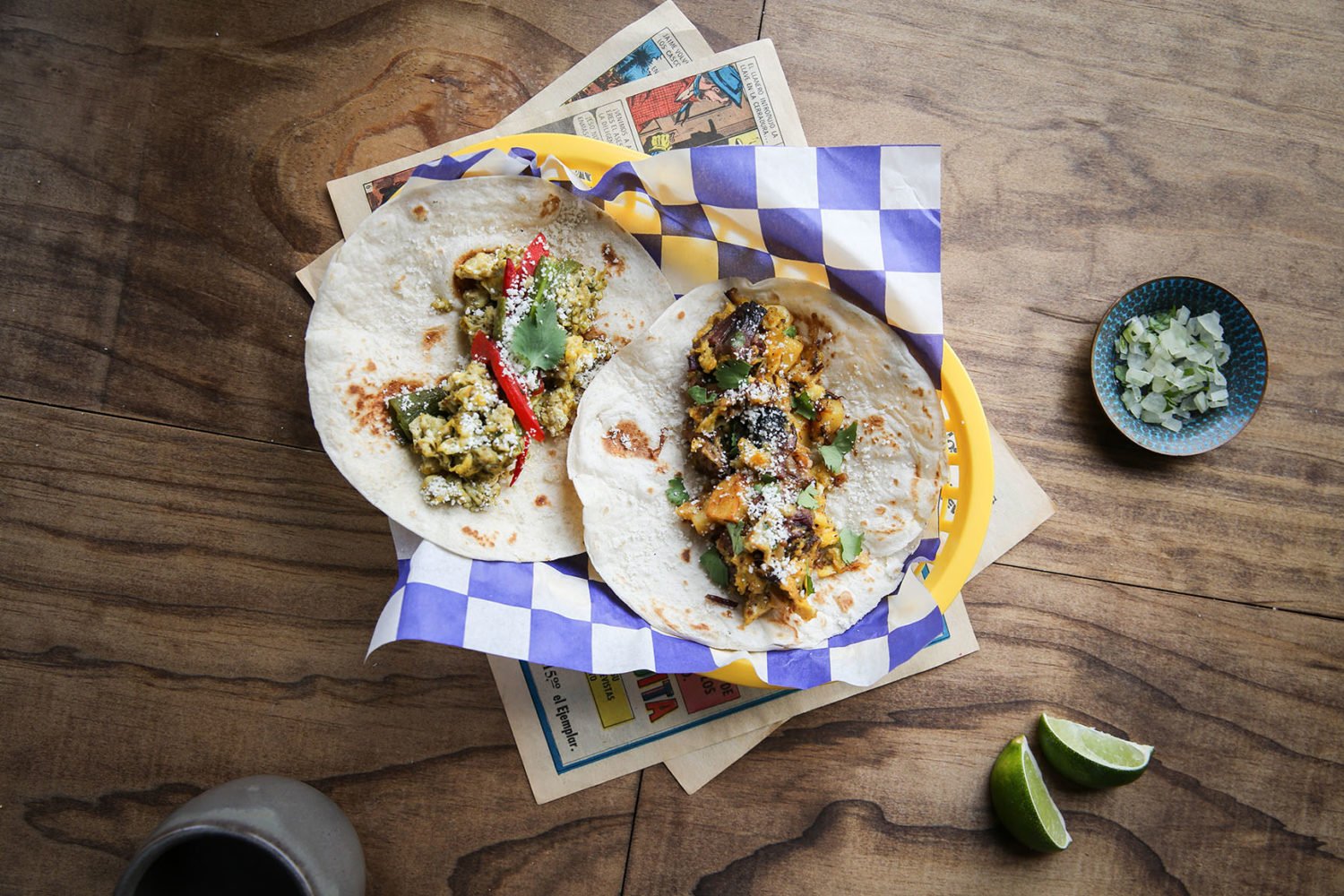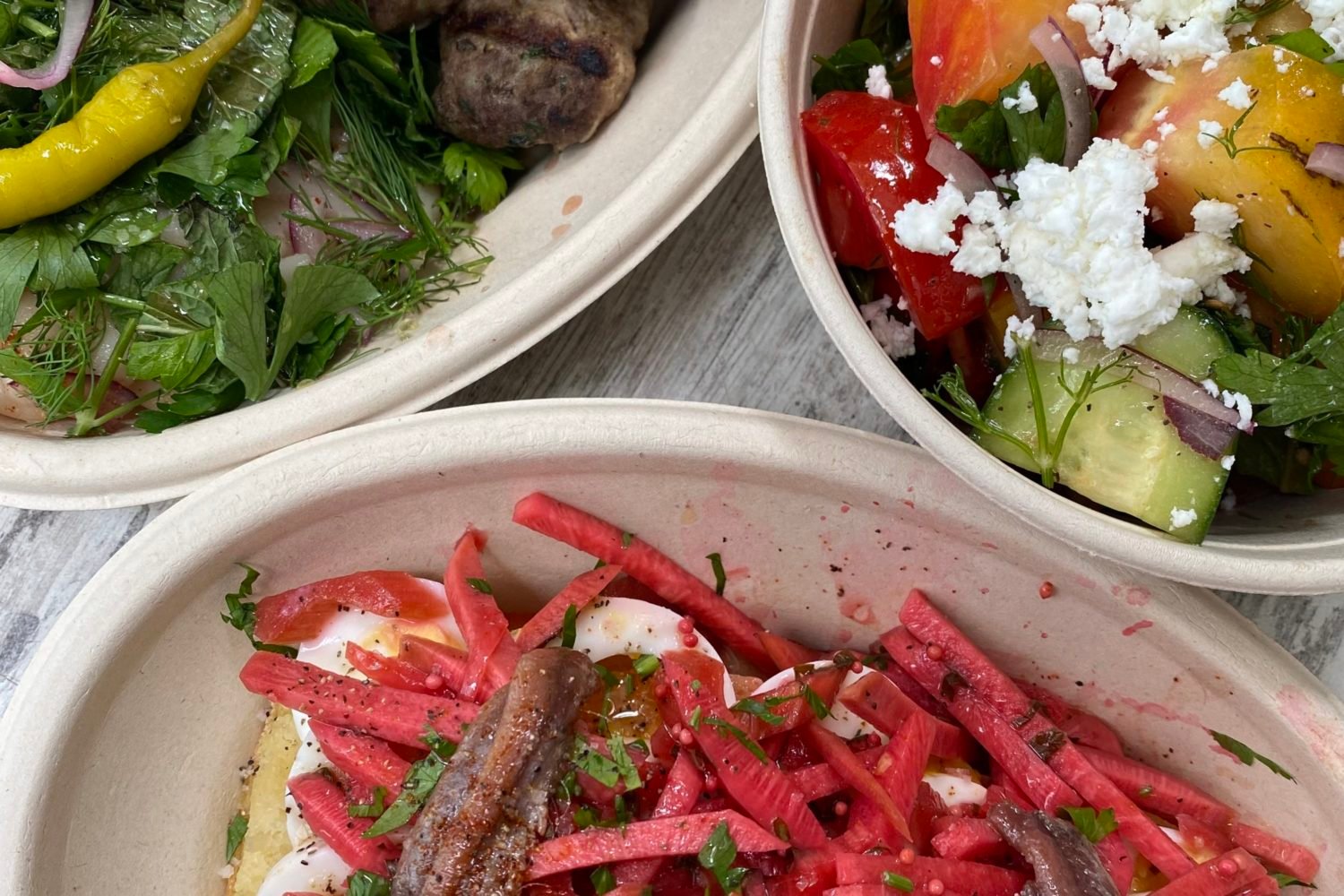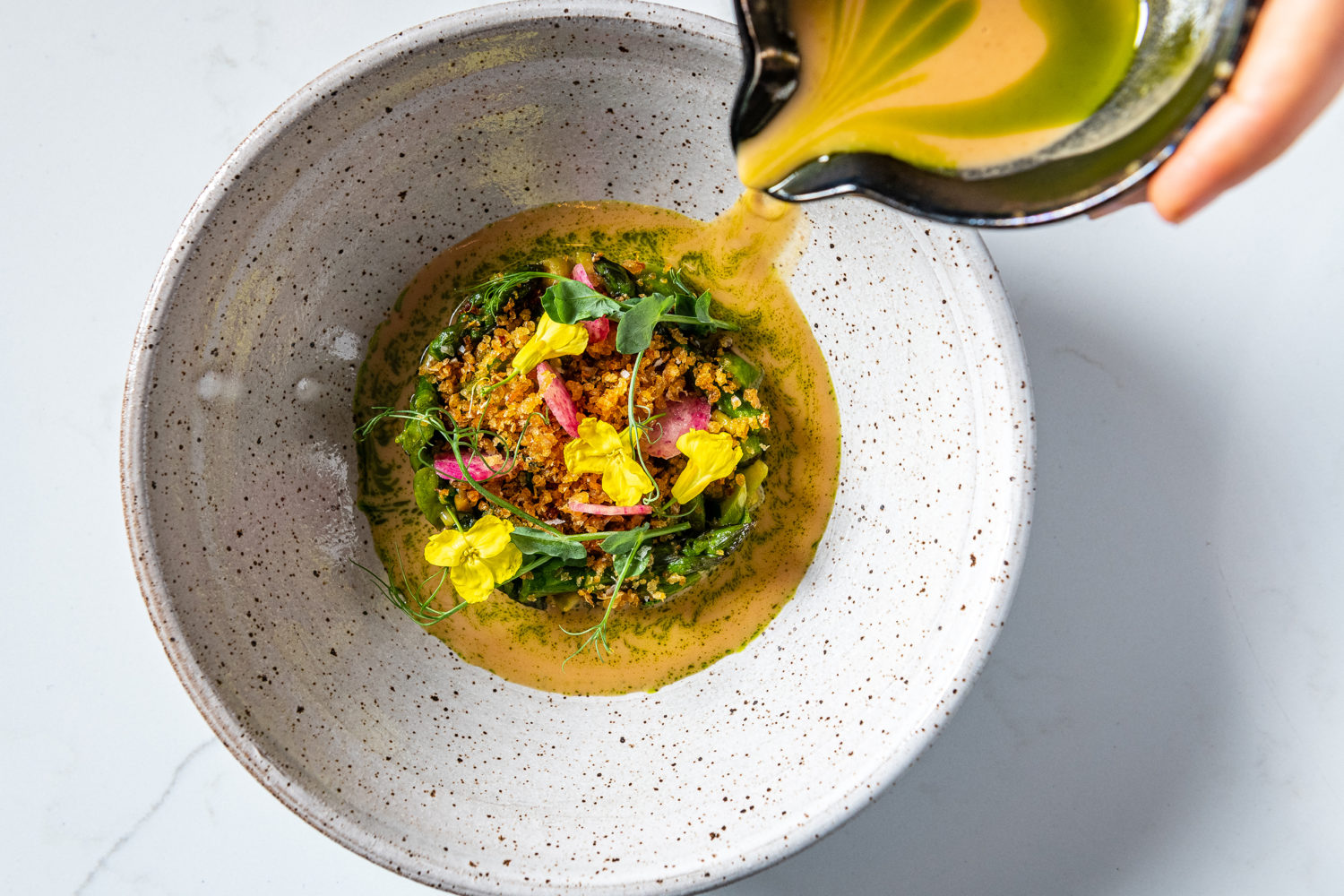Missed your usual set of lunch trucks surrounding Franklin Square on Monday? It’s likely due to the District’s new food truck regulations regarding mobile roadway-vending (MRV) locations, which became active on December 1. Under the new rules, food trucks must enter a lottery system each month and are randomly assigned spots at eight vending locations. While many food truck operators feel optimistic about the changes, others say it could negatively impact business.
The designated areas—Farragut Square, Franklin Square, Union Station, State Department, L’Enfant Plaza, Navy Yard, Metro Center, and George Washington University—are DC’s hotspots for food truck traffic. Trucks have been assigned a different location for each day.
Doug Povich, chairman of the Food Truck Association and co-owner of the Red Hook Lobster Pound trucks, says he and others in the association believe the MRV zones are good for the city.
“There were definitely issues on the streets as a result of too many trucks in the most popular areas causing problems with respect to parking and congestion, and something had to be done,” he says. “We think this solution, if implemented properly, should work pretty well.”
Other owners, including TaKorean’s Mike Lenard, are concerned about the implementation of these regulations.
“I think it takes a lot of government management in order to pull this off and that’s the part that I’m suspect about,” says Lenard, who founded the Food Truck Association. “There will need to be proper enforcement.”
Approximately 200 food trucks are licensed in DC, 107 of which have been allocated spots. There are a total of 95 parking spaces available per day; some food trucks were randomly given spots for four days a week, while others received five. Food trucks that missed the deadline for December will not be able to park at or within 200 feet of prime areas like Farragut Square, and are subject to a $1,000 fine if they do.
Since the lottery is held on a monthly basis, truck owners have the chance to apply toward the end of this month to secure a spot in February. Until then, unauthorized vendors will have to find places to park outside the MRV areas.
“It’s going to affect us very badly,” says Pervais Hamza, the operator of Halal Grill, who missed the deadline. “We don’t know what we are going to do until January. A lot of other trucks are giving up.”
Cirque Cuisine shut down last week, citing the new regulations as the main reason. Co-owners Sean Swartz and Jessica Shields applied for the lottery, but after getting the results, they decided it wasn’t worth it.
“We have spent three years cultivating our fan base at certain locations,” says Swartz. “Now we were being placed in areas we have never been or don’t like.”
Burgorilla is another food truck that has been operating on a business model built around a geographic schedule.
“We come to Farragut on Monday and have been coming for a year and a half. Most of my customers are regulars,” says Robert Estep, owner of Burgorilla and What the Pho?
Estep says what he loses in business may be balanced by savings on parking tickets. The new system allows food trucks that won the lottery to park in their locations for up to four hours—roughly the length of a regular lunch service. Owners pay $125 for the month if they accept their parking assignments, and don’t have to worry about meters.
“In between all my vehicles, I probably receive $1,000 worth of tickets a month,” Estep says.
Time will determine how the new rules will impact the food truck industry as a whole. Stay tuned for more developments.














